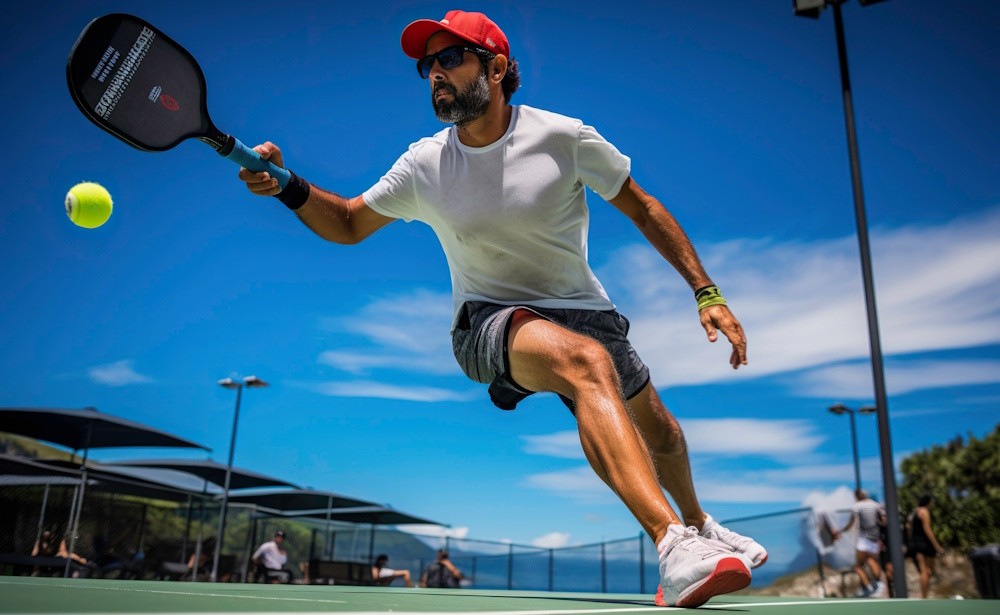Professional Physical Therapy and Other Methods that Increase the Musculoskeletal System’s Resilience
Summer in the Midwest means spending more time outdoors, cheering on the home team at The K, family cookouts, and reengaging in physical activities. Whether your game is golf, tennis, or pickleball, it’s important to remember that extreme heat can affect the body’s musculoskeletal system.
Although joint pain and discomfort are commonly associated with cold weather, extreme heat and humidity are also known triggers. As temperatures rise, preparing your body for these conditions helps ensure you can enjoy your summer activities safely and comfortably.
Adhering to a proper diet, staying hydrated, easing into physical activity, and receiving professional physical therapy and rehabilitation can all contribute to increasing the body’s resilience to orthopedic issues.
Summer Heat’s Effects on the Musculoskeletal System
If you’ve noticed your joints and muscles ache more than normal during the summer months, you’re not alone. Extreme heat and humidity trigger numerous biological responses in the body, including:
- Increased fluid loss due to sweating.
- Reduced blood flow to muscles.
- Increased production of inflammatory cells.
These biological responses put individuals at a higher risk of dehydration, joint inflammation, muscle fatigue, and even heat stroke. By taking a proactive approach to their orthopedic health, individuals can prepare their bodies to endure the rigors of summer.
Stay Hydrated
Because hot weather causes increased fluid loss, hydration is paramount during the summer. Muscles are approximately 76% water, and even slight dehydration can lead to muscle fatigue and weakness, thereby increasing the risk of strains and injuries during physical activity.
To prevent this, drink plenty of fluids before, during, and after your activities. Water is generally best, but if you’re engaging in prolonged or intense exercise, consider drinks with electrolytes to replace essential minerals lost through sweat.
Acclimate Gradually
Allow your body time to adjust to the heat. If you’re not used to hot weather, start with shorter sessions of outdoor activities, and gradually increase the duration week by week.
This process helps your body become better at regulating its temperature, improving your endurance and reducing the risk of heat-related conditions.
Strengthen and Condition
A strong, well-conditioned body copes better with the stresses of hot weather activities. Incorporate strength training exercises targeting the major muscle groups used in your chosen activities.
For example, core strengthening is beneficial for all physical activities, leg strengthening for hiking, shoulder and arm exercises for swimming, and agility drills for basketball. Regular conditioning improves muscle efficiency and resilience.
Explore Professional Physical Therapy
Heat can affect muscle flexibility and joint mobility, especially in those with a history of orthopedic issues, a past injury, or age-related conditions. By incorporating the dynamic stretching and mobility exercises used in physical therapy, you will improve your overall flexibility, mobility, and core strength. It’s also recommended to seek physical therapy near you if you have chronic pain that requires ongoing management.
Prioritize Proper Nutrition
Nutrition plays a crucial role in supporting your musculoskeletal system. Your diet should include adequate protein for muscle repair and recovery, calcium and vitamin D for bone health, and magnesium and potassium to reduce muscle cramps and discomfort.
For a tailored approach to improving orthopedic health, speak with a registered dietician who can help you develop a meal plan that factors in your activity level, age, weight, and fitness goals.
Listen to Your Body
Pushing yourself too hard in hot and humid conditions can have disastrous consequences. Be attentive to your body’s signals. If you feel dizzy, nauseous, or unusually fatigued, stop immediately and seek shade or a place where you can cool off. These may be signs of heat exhaustion or heat stroke, which require prompt attention.
Rest and Recover
Rest is an integral part of preparing for and recovering from hot weather activities. Ensure you get enough sleep and consider rest days or lighter activity days, especially after intense workouts. Sleep is essential to muscle and joint recovery, energy, and cognitive function.
How to Find Professional Physical Therapy Near You
Preparing your body for outdoor activities in hot weather is a multi-faceted approach that considers diet, conditioning, recovery, and best practices that reduce the risk of injury. Ideally, your musculoskeletal system is equipped to handle the stresses of your favorite summer sports and activities, but some may benefit from additional orthopedic support.
If you have a history of chronic pain, athletic injury, or joint issues that limit your mobility, you may benefit from professional physical therapy and rehabilitation. Using a prescribed exercise regimen, your physical therapist will target the problematic areas of your musculoskeletal system, helping you build strength and flexibility.
Start by contacting an orthopedic practice that also provides professional physical therapy. This ensures all your orthopedic resources are located under one roof and enhances collaboration between healthcare providers.

